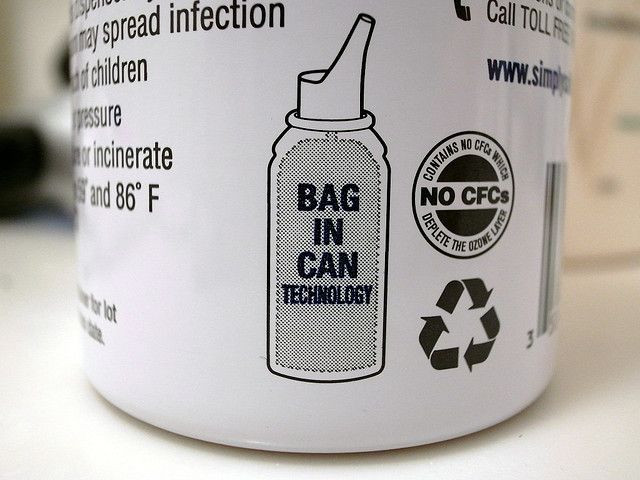Nasal Spray Could Treat Depression Via Dopamine-Targeted Protein Peptide

A new nasal spray designed to treat depression could one day relieve the crippling form of mental illness that befalls some 10 percent of the U.S. population, a new study finds.
The study is the first to test the effects of a nasal spray on depression sufferers, a population that, for one reason or another, has an increasingly hard time finding viable treatment options. While somewhere between 60 and 80 percent of cases can be effectively treated with psychotherapy medication, roughly 50 percent don’t respond to first-line medication treatment — if they recognize they suffer from the disorder at all. Over 80 percent of clinical depression sufferers don’t receive treatment.
Researchers conducted the study from Canada’s Centre for Addiction and Mental Health (CAMH), the nation’s largest mental health and addiction teaching hospital. Their initial tests involved directly injecting a protein peptide into the brains of lab rats, so that they could test how well it disrupted two bound dopamine receptors — a component of the brain’s wiring found to be more highly connected in depression sufferers.
Their initial tests showed success at unbinding the receptors. But in order to reach clinical effectiveness they knew delivery would need to be less invasive. "This study marks the first time a peptide treatment has been delivered through nasal passageways to treat depression," said Dr. Fang Liu, CAMH researcher and professor in the University of Toronto's Department of Psychiatry, in a statement.
Typical antidepressant regimens rely on blocking the transporters for norepinephrine (adrenaline) or serotonin. Generally, people with moderate depression see minimal, if any, relief from antidepressant medications. However, those with severe major depressive disorder often see significant improvement.
Depression is widely recognized in the U.S. but many experts still concede the mental illness carries a burdening stigma. Misinformation and embarrassment prevent people from seeing their chronic sadness as something more. They may feel withdrawn and despondent, yet fear that a diagnosis’ label would paint them in the wrong light — as sick, rather than unhappy.
Perhaps hopefully, prior research has found that the slide into depression experiences a “tipping point” along the way. Before they reach full-blown major depressive disorder, sufferers typically endure a period of mood disorder, a more familiar sense of despair that often gets confused for depression. Researchers behind the study hope one day to develop a smartphone app that can check a person’s mood and assess the user’s risk for depression.
In the meantime, Liu and her colleagues will continue to tinker with their peptide model. The new design can only be injected or delivered via the nasal passageways, as the medication isn’t strong enough to pierce the blood-brain barrier when taken as a pill. But building on this research, the team hopes to create a peptide that arrives at the brain more quickly yet breaks down more slowly — leading to longer-lasting effects. Importantly, Liu said, “this research brings us one step closer to clinical trials.”
Source: Brown V, Liu F. Intranasal Delivery of a Peptide with Antidepressant-like Effect. Neuropsychopharmacology. 2014.



























